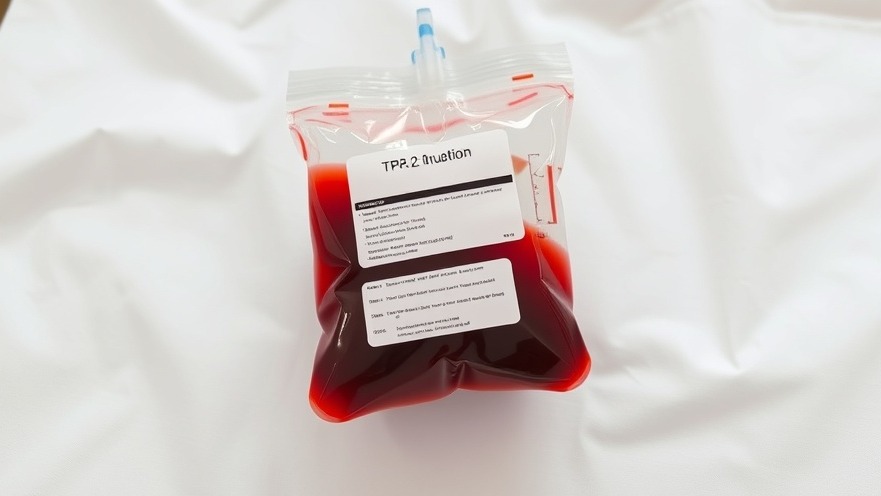
Revolutionizing Trauma Care with Precision Transfusion
In a groundbreaking study, researchers at the University of Pittsburgh have unveiled a novel approach to blood transfusions aimed at enhancing patient outcomes in cases of traumatic brain injury (TBI). The study, published in Cell Reports Medicine, emphasizes the importance of administering targeted blood components instead of a one-size-fits-all approach traditionally utilized in trauma care.
Understanding the Impact of Precision Transfusion
Precision transfusion focuses on tailoring blood products to the specific needs of patients based on their injury type. For patients suffering from traumatic brain injuries, it has been identified that administering plasma—separated from other blood components—results in better recovery outcomes compared to the use of whole blood. Conversely, patients experiencing traumatic bleeding benefit most from whole blood transfusions. This targeted method seeks to maximize the therapeutic effects of blood products while minimizing potential side effects, akin to the principles of precision medicine.
Findings from the Shock, Whole Blood and Assessment of TBI Study
The research was part of a larger effort known as the Shock, Whole Blood, and Assessment of TBI (SWAT) multicenter study, which enrolled over 1,000 trauma patients likely requiring emergency surgery. The study analyzed the effects of different blood components on a subset of patients who received transfusions before hospital admission.
Dr. Timothy Billiar, the senior author and a prominent figure in trauma surgery, highlighted that this approach seeks not just to replace lost blood, but to optimize the delivery of essential components necessary for recovery. The ability to deliver specific blood components like plasma could significantly shift trauma care protocols, particularly in pre-hospital environments where quick decision-making is critical.
The Potential for Improved Patient Outcomes
Traditional transfusion practices often subjected patients to unnecessary risks. By adopting a more informed strategy, clinicians can leverage data-driven protocols that promise to enhance outcomes for trauma patients. Particularly for TBI victims, where secondary injuries due to inadequate oxygen supply can worsen prognosis, precise transfusion could mitigate some of the adverse effects seen in previous transfusion strategies.
Broader Implications for Pre-Hospital Trauma Care
This advancement has sparked discussions around integrating precision medicine principles into emergency response protocols, which traditionally rely on established guidelines that may not account for individual patient variability. With TBI being a leading cause of death and disability worldwide, the necessity for targeted therapies is becoming ever more critical.
Advantages for Concierge Health Practitioners
Concierge health practitioners, who often focus on personalized care, have much to gain from understanding and implementing these advancements in blood transfusion strategies. As trauma care continues to evolve, the ability to make informed referrals or treatment decisions could position these practitioners as valuable allies in their patients’ paths to recovery.
Future Directions in Trauma Management
Looking beyond the current findings, there is an opportunity to incorporate multimodal neuromonitoring to better tailor transfusion practices further. This holistic view of patient care can provide deeper insights into the physiological state of TBI patients and enhance decision-making in acute settings.
As ongoing research continually reshapes our understanding of trauma care, practitioners must stay abreast of these developments. Engaging in dialogue about precision transfusion and following current research will pave the way for more nuanced, effective treatment protocols for patients with traumatic brain injury.
Call to Action: Stay Informed and Adapt
As a concierge health practitioner, it is crucial to remain informed about the latest advancements in trauma care. Consider how adopting precision transfusion principles could enhance your practice and improve outcomes for your patients. Engage with your network and explore ways to integrate these insights into pre-hospital care protocols.
 Add Row
Add Row  Add
Add 






Write A Comment